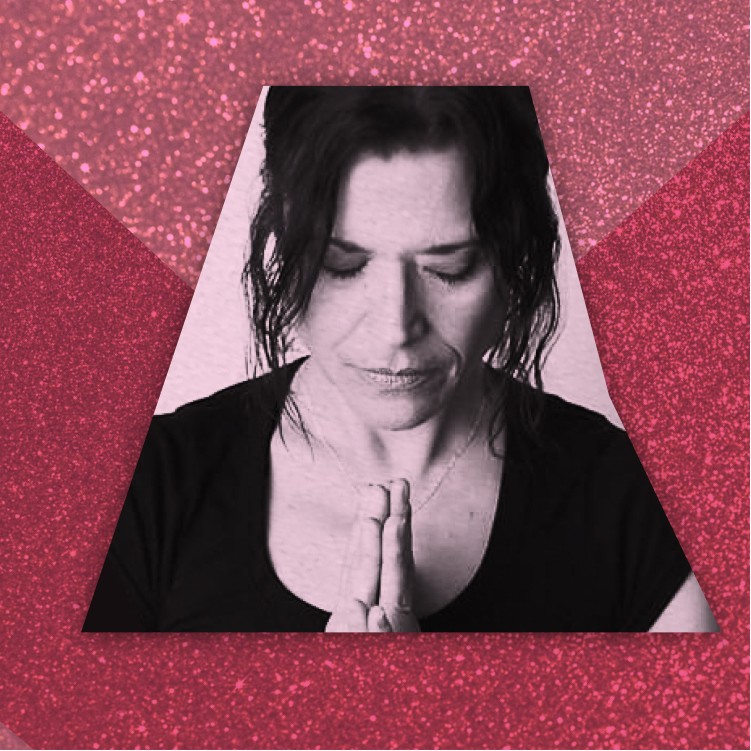My Secret
With access to her 20 journals, Simon discovers Alana’s devotion and obsession with sin, Father Dave’s encroaching influence, and the secret she’s asked to keep.
Part 3 • 38:38
Dear Alana, is available free on all platforms and as an exclusive ad-free binge for Tenderfoot+ subscribers. To sign up or learn more, visit Tenderfootplus.com.
Transcript
The following episode contains references to suicide. If you or someone you know is in need of help, please contact the Suicide and Crisis Lifeline by dialing 988. Listener discretion is advised.
ALANA: “I was wearing black Soffe shorts and a gray t-shirt. I took the bus to see him. We sat in his office. I felt uncomfortable with my short shorts and bare legs. He didn't say anything though. He was covered in black. Glasses. Hair cut close to the skull. He was young, and funny, and passionate. He noticed me. He knew me. He knew I loved God. He forgave my unspeakable sin. He took my defilement and buried it. He kept my secret.
SIMON KENT FUNG: It’s Wednesday night, and I’m happy to be back home in San Francisco. I’m sitting at the back of my local parish, for an evening prayer service.
CANTOR: Good evening and welcome to our celebration of prayer and song in the prayer style of Taizé…
SIMON KENT FUNG: The church is lit by candlelight, and I’m struck by how beautiful it is. Whenever I’m here, I feel like I can just let my thoughts roam free. Tonight they’ll be playing music written by a group of monks from a small town in Eastern France. Somehow, these men ran away from it all, and wrote the melancholic melodies we’re hearing this evening.
CHOIR: “Stay with me, remain here with me, watch and pray, watch and pray.”
SIMON KENT FUNG: I’m thinking about my last conversation with Joyce. And I’m eager to get back to Colorado in order to go through Alana’s journals for myself. But a part of me is uneasy. How many of us keep diaries and journals of our deepest thoughts and feelings, where we confide our insecurities, our secrets, and our dreams? In our journals we get to be totally unfiltered because it helps us process things and because we don’t expect anyone to ever read them. But what does it mean if someone gains access to them when we’re gone, before we’ve had a chance to give them permission to do so? That’s the dilemma I’m weighing this evening. As I stare at the flickering candles, I recall a paragraph that I’d happened upon as we were flipping through Alana’s journals in Joyce’s kitchen. It’s a nondescript line, barely noticeable, but it’s stuck with me. Alana says:
ALANA: “It’s hard to write just for me. I just want to write down my life in a small journal tucked away somewhere in this world. I want to be in this world. I want to be a part of this world. [I feel] invisible. All my life I’ve been hiding away, waiting for someone to find me.”
SIMON KENT FUNG: Maybe she tucked her journals away, waiting for someone to find them. Maybe that someone was me.
From Tenderfoot TV, I’m Simon Kent Fung. And this is Dear Alana.
Part Three. My Secret.
Alana left behind 20 journals, and with Joyce’s permission, I digitally scanned every page, even the ones that had only a few lines on them. In total nearly 1200 pages. It’s worth noting that in some journals, Alana ripped out pages, and we may never know why.
It felt important to give her journals a voice. So we found a voice actress, coincidentally, also named Alana, to help us with that. And you’ll hear her voice throughout the series.
As I begin reading her journals, I can see right away that Alana keeps really detailed notes. She likes to track things on timelines and lists. In one journal, she breaks her life out into big chapters titled, “CALIFORNIA” (where she was born),
ALANA: “Born October 1995…separation anxiety…mom and dad constant fighting…”
SIMON KENT FUNG: “MIDDLE SCHOOL,”
ALANA: “Moved to Colorado in 2000…Dad called me too sensitive—a baby…wild imagination…extreme fear of monsters…can’t sleep…”
SIMON KENT FUNG: “ELEMENTARY SCHOOL,”
ALANA: “Extremely shy…Joy made all my friends for me…Perfectionist in school…Perfectionist in art…”
SIMON KENT FUNG: and “HIGH SCHOOL.”
ALANA: “Conversion…Decided to follow Jesus forever…”
SIMON KENT FUNG: She’s very matter of fact with bullet points under each chapter. This timeline makes it quite easy for me to cross reference things I’ll find later on.
A lot of her early journals contain what we’ve come to expect from Alana: prayers, so many prayers. And lists of people she’s remembering to pray for, like:
ALANA: “Pray for Alexis, Erin, Nouhad, Katie, Ashley…The girl in the station on the way home from Texas… The girl in the Albertson parking lot and her grandkids…”
SIMON KENT FUNG: There are frisbee plays, and arguments with mom.
ALANA: “...insulted Mom.”
SIMON KENT FUNG: And as I continue reading, what leaps out at me the most is just how into God she is. Where you’d expect to find high school gossip and crushes, Alana gushes with that same energy, but for God.
ALANA: “Lord, I love that you’re leading me. I love that you asked me here on a date. I love that you desire a greater intimacy with me, I desire it too. I think someday we will be married. Soon, all that I am will be 100% yours. Lead me forever closer to your Sacred Heart. I love you.”
SIMON KENT FUNG: Wow. A date with God? That’s intense. We get a little more in the next paragraph. Like a follow-up text.
ALANA: “Dear God, I wanted to write you a little diddy note because I’m so tired and distracted. Our date was for me a very delirious thing. I love you. Since you’ll be in here all day I’ll call you often. Pray with me, that I may not fear. And grant that I may have interior silence. The days are so busy. Let it help and not hinder me from an intimate relationship with you. Have a good day, save me a seat at Mass. Love, your girl, Alana.”
SIMON KENT FUNG: I’m sure by now, you’ve picked up that Alana’s experience of Catholicism is a little out of the ordinary.
Most Catholics get the basics of their faith from their parents or Catholic school, then fade out from the church or maybe show up once in a while at Christmas or Easter. They don’t sneak out during the week to go to Mass, or write passionate love letters to God. Alana uses phrases like, “Jumping into the ocean of the Father’s love,” and, “Grant that I may have interior silence.” These are spiritual concepts that are lifted right out of the mystical writings of 17th century European saints, people who had uniquely powerful experiences of God who were speaking of their era. Gen Z Millennials, don’t talk like that, no matter how much they’re in love.
It’s a sunny afternoon and I’m back in Louisville, Colorado, the town where Alana grew up. I’m walking the downtown strip and finally make it to my destination: the local ice cream shop, Sweet Cow, where Alana used to work. Today, in memory of Alana’s birthday, they’re giving a proceed of all purchases to support mental health resources. Joyce is sitting outside with some of her friends.
SIMON: Hi!
JOYCE’S FRIEND: Welcome to the area!
SIMON: Sophie, come over here.
SIMON KENT FUNG: They’re exchanging stories about Alana. I get a cup of chocolate oatmeal stout, and sit down to join them. As they reminisce about Alana, the conversation starts to move from nostalgia to anger.
JOYCE’S FRIEND: …shame-based religion to shame these Catholic people…
SIMON KENT FUNG: There’s a sense that the Church was somehow responsible, that its influence on Alana was a big part of why she took her life. I can understand if it’s friends and family reckoning with their grief and looking for closure, and the Church can be an easy target. But what exactly happened in the Church—something that Alana clearly loved—that could lead to such a terrible outcome?
JOYCE’S FRIEND: She left all her journals. But that—there’s something that was there.
SIMON KENT FUNG: Like Joyce’s friends, I’m wondering if her journals might offer some clues.
As I leave the ice cream shop, I’m starting to feel the weight of responsibility I have on my shoulders with Alana’s writings. It’s time to get back into them.
ALANA: “Only one thing is important—eternal salvation. Only one thing, therefore, is to be feared—sin.”
SIMON KENT FUNG: Like Alana, I didn’t grow up in a particularly devout family. But I still had a very intuitive sense of right and wrong. (As a child, I once felt so guilty for taking the sewing kit from my Mom’s drawer to play with it in my bedroom, that I ran crying to her the next day, begging her to forgive me for stealing). Alana, it seems, was just as careful. There are literally dozens of pages where she writes out her sins.
ALANA: “Jealous of others…Lied about daylight savings…Lied to parents about going to Mass…Let Ultimate keep me from the Lord… Used to be pro-choice and for gay marriage… Kissed [a friend] on the cheek without realizing the damage… Facebook stalking…Insecure especially in middle school…Obsessed with how I looked… Ungrateful, for the gifts God had given me… face, hair... Wanted to be somebody else.”
SIMON KENT FUNG: To be clear, a lot of these are not sins, but Alana thinks they are.
ALANA: “I feel bad. I just opened the bathroom door on someone. I'm sorry. Please forgive me.”
SIMON KENT FUNG: It can be hard being a young person navigating these rules, trying to gauge how bad it was that you took the sewing kit, or accidentally opened the bathroom door.
As I got older, I learned that there was an intricate system to sin. And I found myself gravitating to obscure documents and websites, which laid out all the rules. It was like a secret code. For example, did you know you have to be at least 7 years old, what the Church calls the “age of reason,” in order to sin? Sins not only break the order of the universe, but also hurt God, like personally. Thankfully there’s a way out. If you’ve committed sins, especially serious, intentional ones (what Catholics call “mortal sins”), you can be forgiven by going to confession.
JOYCE: So she was always in confession.
SIMON: Did she go to confession like every week?
JOYCE: Every week. And she’d go up and have her arms crossed and I mean, she was the perfect Catholic. And I was like, “What are you?—” She goes, “I didn't go to confession this week.” And I said, “Alana, you don't have to go every week. Why do you think you have to go every week?” And she just said, “I have to.” And like, that was, that was younger. But I couldn't believe it. I just started—all I thought was wow, she's really, really conservative Catholic. This is over the top.
SIMON KENT FUNG: Confession is sacred space. Nothing said there is allowed to leave it. And because of that, it’s where you can share your most private details.
PRIEST: Go ahead.
SIMON: In the name of the Father, and of the Son, and of the Holy Spirit, Amen. Bless me father, for I have sinned. It’s been a month since my last confession.
SIMON KENT FUNG: At my most devout, I’d go every week, though the recommendation is to go once a month.
SIMON: These are my sins: I yelled at my dad last weekend. We got in a fight and I said some really nasty things to him. I spoke behind one of my co-workers’ backs. I had impure and lustful thoughts…
SIMON KENT FUNG: There are plenty of confession guides that help you structure your conversation here, but essentially, you go through your list of sins and mention how frequently they occurred since your last confession. And you’ve got to confess the “mortal” ones. This is key.
PRIEST: Very good. So tell me more about what the fight was about…
SIMON KENT FUNG: The priest might then probe a bit into what you just confessed. Give you a bit of informal counseling and advice (like, maybe you should talk to someone about your addiction, or see a therapist about your anger).
PRIEST: Very well, for your penance, say ten Our Fathers and three Hail Marys… And now make your act of contrition.
SIMON: Oh my God, I’m truly sorry for all my sins with all my heart.
SIMON KENT FUNG: So if you’ve done all of this, and are truly, honest-to-God sorry for your sins, then, when the priest responds with his prayer…
PRIEST: …And I absolve you from your sins in the name of the Father, and of the Son, and of the Holy Spirit.”
SIMON KENT FUNG: …then your sins are forgiven. You're back in the fold. Back to being in a state of grace.
For a lot of people, confession is kind of therapeutic. Like you’ve unloaded these burdens and now you’re starting from a clean slate. But for me, I remember stressing out about making sure I did everything right, making sure I kept careful inventory of all my sins, making sure I was sorry with all my heart, sometimes even going back to make a second confession if there was any doubt. And I see how it might have been the same for Alana. She writes about how she’s often anxious at Mass.
ALANA: “Dear Lord Jesus, I want true interior freedom, in order to serve, praise and love You. But sometimes I have [so] much anxiety…Can I be free in the midst of it? And why during Mass?... My desires have been so impure that…I still feel ashamed, am I not yet free?”
SIMON KENT FUNG: Alana’s commitment to confession was felt by her siblings. Here’s her sister Carissa again.
CARISSA: She would text me like, Hey, you want to hang out? Like, we haven't seen each other. I'm like, “Okay, let's get lunch.” She was like, “Oh, I was actually thinking we could go to confession.” I'm just like, “No, that's like, not my form of spending time with my sister.” Like this feels like a trap.
SIMON KENT FUNG: And here’s her younger sister.
SOPHIA: I know I was in middle school when I started getting pushed to go to confession by my sister. And I thought I had a similar interest because I wanted to be like my sister.
But I remember going and reading this card saying like all the lists of possible sins you could confess. And masturbation was like staring at me. It was yelling. And I thought it was like the most taboo thing ever. I mean, I don't care anymore, but when you're young, it's weird. You don't talk about it, especially as a woman. I was like, oh my gosh, I have to tell this priest this, ‘cause God knows I'm doing it. So I'm like, he must know. So I remember doing that, and 13 year old me is just doing my Hail Marys at home. But it was very shameful.
ALANA: “When I was in 7th grade my mom made us go to confession. As I was reading the pamphlet I saw that word that I learned to hate, that thing that I thought I invented. Well, now since I was past age 7, the age of reason, I was culpable for my sins.”
SIMON KENT FUNG: Alana’s reaction to masturbation was different than her sister’s. Whereas Sophia eventually stopped caring about confessing this, Alana doubled down on it, doing the calculus to measure her culpability. All over her journals, Alana obsesses over this subject.
ALANA: “At one point in my childhood, I tried to achieve an orgasm from masturbating my armpit. I thought maybe it was just touching my private parts that was bad and maybe if I could make myself feel good in touching a holier, more innocent part of my body that it wouldn't be a sin. It obviously didn’t work.”
“Even before I knew it was a sin I was ashamed of what I was doing since before I can remember. When I found out it was a sin I doubled my efforts to try to stop. I counted the days I could go without doing it.”
“Dear Jesus, I have a lot of problems. I think I have a boy's mind - very dirty. I don't know why, but I'm sorry for preferring weird things over you. It’s kinda funny, not really, but, Fr. D told me not to take myself so seriously, so, yeah. But he’s right. I just want to praise you and forget about me! You are so good! And I love you! You have the power to make me clean…Give me a clean mind, I love you. Ok, now I will pray for purity.”
SIMON KENT FUNG: As a teenager, when I learned that masturbation was a mortal sin (also in a pamphlet—these pamphlets seem to have gotten a lot of traction), I became fixated with not doing it. Every time I’d feel the urge, I’d think about how much I’d be hurting God. And it wasn’t just fear of hurting Him that stopped me from doing it. I learned about really compelling theological and philosophical reasons for why masturbation was wrong. Through some combination of determination, fear, and perfectionism, I managed to stop masturbating for, and I’m not kidding, over a decade. But I attributed it to God’s grace.
ALANA: “Summer 2009…super depressed…miracle…I gave up masturbation from age 13 to 20 years old…abstinence lasted 7 years.”
SIMON KENT FUNG: It looks like Alana had an almost identical experience. She credits her stopping masturbation to a miracle. A sign of God’s closeness. And it’s not just with masturbation that she’s so strict with herself. Here’s an ambitious list of what she’s giving up for Lent.
ALANA: “24 hr fast, one peanut butter sandwich… No dessert…Only water… No straightening hair.... NO POPPING ZITS! Cold shower Wednesday, lukewarm showers other days, hot shower Sunday…One blanket, no pillow…No texting in class unless emergency…No YouTube…Invite Carissa to mass every Saturday night.”
SIMON KENT FUNG: And in another entry.
ALANA: “I commit to becoming a Disciple of the Lamb. This means participating in monthly meetings with my spiritual director, making a monthly tithe, and two periods of mental prayer each day.”
SIMON KENT FUNG: Her spiritual director, Fr. David Nix. Mentions of him are becoming so frequent that it’s impossible to ignore.
ALANA: “Things to tell Fr. Dave: about Come & See, pink blanket?...lack discipline with mortification, temptations, desires…”
SIMON KENT FUNG: Fr. Dave, as you might remember from Alana’s earlier writing, is her priest and spiritual director. They meet regularly, and Alana even goes on a student missionary trip he organizes to Rwanda. In her timeline, under a heading titled “Fr. Dave” Alana bullets out: “Sneak out to meet him…didn't tell parents, first person to really tell about family life…” Spiritual directors, and I’ve had a few, are usually priests who serve as spiritual guides or coaches. You confess to them, and they give you advice, homework, and reading material to help you on your spiritual journey. Again, these are bonus-level Catholic practices. Most Catholics don’t have spiritual directors. But Alana seems to be relating to him almost like a therapist.
Fr. Dave is from Denver, graduated pre-med, became a paramedic and then a campus missionary, before entering the seminary and getting ordained as a priest at the age of 31. His first job, out of the gate, happens to be at St. Tom’s—Alana’s church.
ALANA: “You sent me Fr. Dave to help me out of my despair at camp. He was the first person I told my temptations to and through him I felt your endless compassion.”
SIMON KENT FUNG: “First person I told my temptations to.” I can guess what she’s talking about, but I’m not totally sure. And then I find several entries about a friend.
ALANA: “I don't really remember how it started, but somewhere along the line during sophomore year we became great friends. Then something began to stir, deep beneath the surface. It was new to me but I didn't know what it was, or what was happening. During these times I always convinced myself we were just friends, but some days I imagined us holding hands, or sharing a first kiss in [her] car. At this point I wanted to tell [her] how I felt but it was trapped within me.” Fr. Dave said I should love her more, not less, and pray for her.”
SIMON KENT FUNG: It seems like Alana’s sharing a lot with Fr. Dave, including her budding feelings for a friend—another girl. Could these be the temptations she’s talking about?
I’m looking through Alana’s emails. After she passed, her brother was able to get into her laptop, and preserve access to her files and accounts. As I go through her inbox, I’m amused at how Catholic it is: updates from St. Tom’s, heartfelt conversations with nuns, newsletters from an anti-porn group. And many emails with Fr. Dave. Alana reminds him to share with her the writings of St. John of the Cross (the medieval mystic), which he does—so it looks like he’s been introducing her to the saints. And since August of 2015, she’s been subscribed to Fr. Dave’s blog where he sends her updates every two to three days with posts like this one about confession from April 2017. I click on it.
The post is devoted entirely to masturbation, hell, and sexual purity. Fr. Dave describes how “pornography releases real-live demons into your home” who have access to your memories, and how looking at porn is actually a slippery slope towards becoming a serial killer. (There are a lot of religious groups who’ve made this connection, similar to what’s been said about violent video games and movies.) He goes on to elaborate on how masturbation and oral sex are mortal sins worse than premarital sex.
I’m deeply familiar with these ideas. The sheer fear of demons from hell was a big reason why I was so compulsively and mortally afraid of masturbating or having sexual thoughts about anyone. But I’m baffled by what I read next.
He writes, quote: “I believe that masturbation is a homosexual act. Many men might think they feel manly by looking at pictures of women and masturbating. But the reality of it is: It’s a man’s hand that is leading a man to ejaculate…Masturbation may be one reason why so many straight men become gay.” End quote.
I haven’t heard this line of reasoning before. And I can only imagine the impact it might’ve had on Alana, who’s clearly taken to heart so many of these kinds of messages about sin—almost compulsively. But it brings me back to my own teenage years, when I was trying to make sense of it all: my surging hormones, my confusing emotions, my deep desire to follow God. When I met my spiritual director, I finally found someone who had answers, clear rules to follow. And even if I didn’t understand everything he said, the way he said it—with confidence and certainty, like the way Fr. Dave writes—it gave me a deep sense of security.
I go back to Alana’s timeline.
ALANA: “HIGH SCHOOL. Fr. Dave surprise. Hugs me at adoration. First person to come out to. Tells me God loves me so much.”
SIMON KENT FUNG: At this point it’s not even funny how much Alana and I have in common. The first person I ever felt safe talking about my sexual and romantic feelings to, was also a priest. And like Fr. Dave, he reacted similarly by downplaying it, telling me it was gonna be okay. I remember the sense of relief. “Everyone struggles with things,” he said. So to me, confessing all this wasn’t really “coming out,” but more like sharing a temptation, alongside the many other temptations I was working on. His reassurance gave me a sense of relief. Like, it was all a work in progress.
But as I keep reading, I find something I don’t expect…
ALANA: “First person to come out to. Tells me God loves me so much. Says not to tell parents.”
SIMON KENT FUNG: From Alana’s own words, Fr. Dave told her not to tell her parents that she was having romantic feelings towards women. Why would he instruct a minor to keep secrets from her parents?
I talked with Alana’s mother, Joyce, about this. She didn’t know what secrets were being kept from her, but she starts to get suspicious about Alana’s frequent confessions. And she eventually discovers that Alana’s been meeting with Fr. Dave one-on-one for spiritual direction. So she books an appointment with Fr. Dave directly. And Alana joins her. Here’s how Joyce remembers that meeting.
JOYCE: I said, I'm very concerned. You're in here with my daughter, a minor. I imagine the door was shut. I don't know. I have no knowledge of this. I didn't give any consent. She's 14. And you're talking to her about being a nun and she's young. Like my daughter needs to go to high school and go to college and I don't know what you're doing. Like, why didn't you ask me? Like, this is outrageous.
SIMON KENT FUNG: What happened next, took her by surprise.
JOYCE: And he just was really smug and right. He was right. And he went on and on and on. He wound up saying that I'm not Catholic, really. And Alana is worried about her dad and her siblings. You know, Carissa has a boyfriend and, um, she's too young. And he said, how come you're letting her have a boyfriend that young? And then he gives me the chastity CD. And I was just like, I was blown away. Like I almost was like in shock. Like, I came here because of what you're doing and you have just twisted this whole thing and bashed everyone in my family, including me.
SIMON KENT FUNG: Things got heated.
JOYCE: He's like, you're not really Catholic. I go, I'm Catholic, but I take what I like and leave the rest. I don't like everything in the Catholic Church. And that is fine. I don't believe in it. I think it's not of Jesus, some of the things. He goes, well you're not Catholic, there's no such thing as a liberal Catholic. You're Catholic, or you're not Catholic. And he started like arguing with me, you know. And I just remember Alana's head was down. She was like, you know, scared. She didn't want me to fight or anything like that.
SIMON KENT FUNG: And then, Alana spoke up.
JOYCE: And at one point she was like, please, mommy, I want to still see him. And then, so then it turned it all around. Like then it was like I, I felt bad for her. So I said something like, she can, she can talk to you, but I'm, I'm going to be outside, waiting with the door open. And then I remember, “Okay.” And then every time I tried to get that to happen, you know, he texted me a time and I'd say, well, I've got three kids I'm taking to tap dance and ballet and a son to basketball. Like it never coordinated. And he didn't try hard or at all to make it work.
SIMON KENT FUNG: As outrageous as Fr. Dave’s behavior might look, I can totally relate to it. As I learned more about my faith from my spiritual director, I saw it as my holy obligation to police who was Catholic and who wasn’t. People needed to know the errors of their ways, and if I didn’t say anything, I could be culpable for their sins. It also makes sense to me now why Fr. Dave may have told Alana not to tell her parents. They would have accepted her, maybe even encouraged her to pursue a same-sex relationship. That would've been going against Church teaching.
Three months later, Fr. Dave is reassigned from St. Tom’s to another parish in the Archdiocese. Joyce is relieved that he’s out of the picture. But for Alana, who’s in tenth grade at the time, she’s losing the only person she feels safe with, the only one who knows her secret.
As I return to the journals, I stumble across several drafts of a letter written by Alana.
ALANA: “Dear Archbishop Aquila, I would like to express gratitude for the…loving fatherhood of Fr. David Nix, who was just recently asked to leave St. John XXIII…”
SIMON KENT FUNG: …That’s his 4th church assignment in 3 years.
ALANA: “I know that in the past…he has run into many difficulties. You have probably heard many complaints & accusations about him, and not many good things..I do not know why, but I strongly believe that God chose Fr. Dave to be an instrument for the salvation of my soul. I met him when I was 14 years old, right as I had dedicated my life to Christ. Fr. Dave offered to be my spiritual father. He taught me to pray, to read scripture, to go to mass and confession, he was the one who told me to volunteer at the…Gift of Mary shelter. After he left St. Tom's, he promised he would always be my spiritual father and would always be praying for me. He has counseled me through doubt and temptation. When I was in danger of leaving the church out of despair, by the grace of God, Fr. Dave was there.”
SIMON KENT FUNG: The average church assignment for a Catholic priest is six years. But Fr. Dave is averaging a little over a year per assignment. And his shortest one, according to the records, lasts less than five months. That doesn’t seem right.
Alana’s defense of Fr. Dave, in writing to his boss, the Archbishop, makes me realize just how important he was to her.
And yet, his frequent reassignments raise a lot of questions. According to the Catholic News Agency, Fr. Dave was initially held back from ordination because of quote, “psychological issues.” Once he was ordained, it seems he couldn’t hold down a job. And while the reasons for why he was moved around aren’t totally clear, at least one of them, according to an email he wrote to Alana, involved a spat with a parishioner in which the police were called. The Archdiocese of Denver describes how quote, “After four failed parish assignments, it became very difficult to find a pastor who would receive [him],” end quote. By 2014, Fr. Dave was seeking ministry outside of Denver, including at a Latin Mass community in Virginia. But, according to the Archdiocese of Denver, in each case, he was asked by these other dioceses to return to Denver.
And then I stumble across something else. It’s a journal entry that Alana wrote years later, reflecting on her meetings with Fr. Dave. It’s clear that this man played a big role in her adolescent life, and even as a young adult, she’s still processing it.
ALANA: “I took the bus to see him. We sat in his office. I felt uncomfortable with my short shorts and bare legs. He didn't say anything though. He was covered in black. Glasses. Hair cut close to the skull. He was young, and funny, passionate. He noticed me. He knew me. He knew I loved God. He knew I did not want to marry a man. I was 14 years old. I didn’t tell my parents where I was going, I didn’t want anyone to know why I loved God so much. He forgave my unspeakable sin. He took my defilement and buried it. You ought to pray the rosary every day. Later he said I better pray it five times per day, to keep the temptation away. He wanted me to be holy, unblemished. He called me a diamond in the rough. ‘The rough’ being my family. I came to despise my family. Only he was holy. I did everything he told me to do. They cheered when he said he was leaving. I cried.”
SIMON KENT FUNG: In the wrong hands, a secret can exercise an enormous amount of control, even divide someone from their family.
I flashback to the relationship I had with my spiritual director. By college, I was meeting regularly with Fr. William, confessing to him, and talking to him about my problems. And like Alana, I had this confusing part of me that I had never acted out on, or told any of my friends or family about.
One day, Fr. William, my spiritual director, sat me down. We’d been talking about me becoming a priest for a while. And I knew this day would come. He looked me in the eyes, smiled, and carefully asked me, “Simon, are you ready to answer the Lord’s call? Will you join the seminary in September?”
My heart was pounding. I wanted to leap up and say, “YES!” The thought of dedicating my life to serving God and his people as a priest, gave me so much joy.
But I held back. That part of me that could never tell lies, knew that something had to be said.
“There’s something I have to tell you, Fr. William.” “What’s that?” he asked. “Well, for as long as I can remember, I’ve struggled with some, um, different sexual feelings.” His smile faded. “Of what nature?” he asked. I looked down. “Of the same-sex,” I said, trying to avoid any loaded terms.
Fr. William’s face became like a stone wall. He took out his notebook and his ballpoint pen, wrote something on it, and handed it to me. “Take this,” he said. “These people will fix you. Come back when you’re healed.”
[Theme: “I Will Follow You,” by Toulouse]
Next time, on Dear Alana.
ELIZABETH MOBERLY: I believe that homosexuality, derives not from genetic or hormonal causes. I believe it is linked with difficulties in the early relationship with the same-sex parent.
JOSEPH NICOLOSI: We are allowing people to be who they want to be. We’re not imposing. We’re not forcing people to change. We’re just exploring.
Dear Alana was created, hosted, and written by me, Simon Kent Fung, and is a production of Tenderfoot TV in association with Aslept Audio and the Center for Independent Documentary. It was produced by Laurie Polisky, who also composed the music. Executive Producers are myself, Donald Albright and Payne Lindsey. Our Supervising Producer is Tracy Leeds Kaplan. Additional music by Makeup and Vanity Set. Sales and distribution by iHeart Media. Our voice actor is Alana Rabor and our credit song, “I Will Follow You,” is by Toulouse.
Show notes and resources can be found on our website dearalana.com. If you enjoyed this episode, please take time to follow the show, rate, and review.













